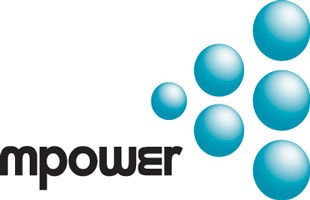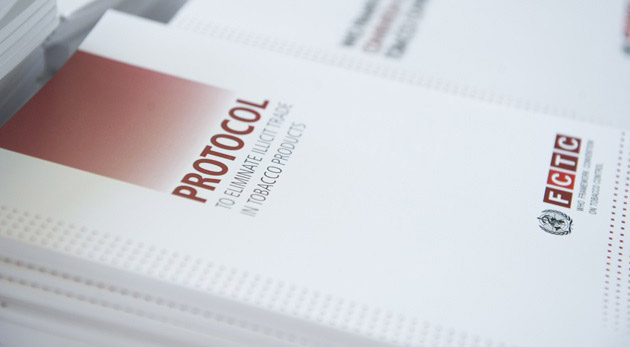Islamic Republic of Iran: Qom tobacco-free city initiative

Context
The Islamic Republic of Iran became a signatory to the WHO Framework Convention on Tobacco Control (FCTC) on 6 November 2005. In line with this commitment, Iran implemented the Comprehensive Act on National Control and Campaign against Tobacco in 2006, accompanied by the Executive Bylaw of the Act in 2007. These legal instruments comprehensively addressed the obligations outlined in the WHO FCTC, covering its substantive articles. Additionally, Iran became a Party to the Protocol to Eliminate Illicit Trade in Tobacco Products in 2018, following parliamentary approval in 2015. Notably, tobacco advertising, promotion and sponsorship are strictly prohibited by law in Iran, and the government is planning to increase penalties for violations in 2020. The National Tobacco Control Headquarters, supported by the resolution of the presidential approval, drafted the National Tobacco Plain Packaging Guidelines in 2019, with finalization of the guidelines currently underway.
To facilitate and support the implementation of the WHO FCTC and the Act, Iran established a national coordination mechanism in 2007, led by the Ministry of Health and Medical Education. The National Tobacco Control Headquarters consists of relevant ministers, key authorities and representatives from active nongovernmental organizations, along with several technical working groups. The enforcement of legislation is supported by Article 14 of the Bylaw, which obliges the Law Enforcement Department (the police) to collaborate with inspectors from the Ministry of Health and Medical Education and the Ministry of Industry. Moreover, the Ministry of Interior oversees law enforcement at the provincial and district levels through its administrative infrastructure.
To reduce tobacco demand, Iran has developed a national tobacco control plan based on the six MPOWER measures. To monitor tobacco use and prevention policies, a schedule has been established and endorsed by the Ministry of Health and Medical Education to ensure regular implementation of the WHO STEPS Survey and Global Youth Tobacco Survey. In line with the Act (Article 13) and the 2008 Bylaw (Articles 1, 7, 8 and 9), smoking in public places is prohibited in Iran, with a broad definition of public places that includes locations open to the public such as religious sites, restaurants, coffee shops and teashops. Additionally, since 2019, the Ministry of Health and Medical Education has operated a toll-free telephone complaint line, enabling the public to report violations of the ban on tobacco consumption in public places and other environmental and occupational health issues, which are then investigated by environmental health inspectors.
In pursuit of universal health coverage, the Ministry of Health and Medical Education launched the Health Transformation Plan in 2014 to reform Iran's health sector. The Health Transformation Plan focuses on primary healthcare reforms, including the integration of a new service package for the prevention and control of noncommunicable diseases and mental health services, including tobacco cessation services starting in May 2014. Throughout the country, approximately 1600 psychologists have been recruited to work in comprehensive health centers to support nationwide tobacco cessation services. Notably, the Ministry of Health and Medical Education has secured the necessary budget to establish a national reference tobacco control laboratory by purchasing sophisticated laboratory equipment (work in progress).
According to the national noncommunicable disease risk factor survey (STEPS 2016), approximately 14.3% of the population aged 18 and older in Iran were smokers (25.16% male and 4.01% female). Unfortunately, in recent years, there has been an increase in waterpipe consumption, particularly among youth and women.
Initiative
To combat the increasing prevalence of smoking, particularly waterpipe smoking among youth and women, the National Tobacco Control Headquarters Secretariat, supported by WHO, introduced the concept of smoke-free cities as an effective strategy to reduce tobacco demand, starting in 2019. Inspired by the successful implementation of tobacco-free initiatives in holy cities like Mecca and Medina, the city of Qom, known for its religious significance, was selected as the first smoke-free city in Iran, followed by Mashhad. With a population of 1.2 million, Qom attracts approximately 20 million pilgrims annually, making it a significant destination.
In July 2019, an advocacy mission took place in Qom, led by representatives from WHO and the Ministry of Health and Medical Education. During the mission, meetings were held with respected religious leaders in Qom to advocate for the Tobacco-free City Initiative in religious sites. The initiative garnered support from these influential religious leaders and subsequently received approval from the province's Governor General, the municipality of Qom, and the Ministry of Health and Medical Education. The plan of action and the monitoring and evaluation framework were then developed in collaboration with relevant stakeholders.
It is worth noting that the initiative in Iran follows a results-based management approach and encompasses various aspects, including reducing the supply of tobacco products and services, with a particular emphasis on waterpipes. It also focuses on strengthening the ban on tobacco advertising, promotion and sponsorship, raising awareness about the dangers of tobacco, protecting individuals from second-hand smoke and providing assistance to quit tobacco use. Given the results-based management approach as the foundation of this initiative, monitoring, evaluation and reporting play a crucial role in its implementation.
Challenges and lessons learnt
The challenges encountered during the implementation of the initiative are outlined below.
The presence and influence of multinational tobacco companies in the country.
Resistance from tobacco and waterpipe suppliers due to economic incentives.
Limited community engagement in tobacco control efforts.
Insufficient taxation on tobacco products.
Reduced access to tobacco cessation medications due to sanctions.
Studies have shown that engaging religious leaders in advocating against tobacco use has had a significant impact on their followers, resulting in a decrease in tobacco consumption among this population. Additionally, the strong political commitment at the national level has allowed the Ministry of Health and Medical Education to successfully adopt a multisectoral and multistakeholder approach. This approach has facilitated the implementation of policy-level interventions, fostering collaborations within and between sectors. Furthermore, involving community leaders, including influential religious leaders, in policy-making processes has been beneficial for tobacco control efforts. Lastly, the results-based management approach has played a significant role in enhancing the quality and timeliness of intervention implementation and overall planning.
The effective advocacy among religious leaders, along with the active participation of city political and health authorities in the implementation of the Tobacco-free City Initiative in Qom, has had a profound impact in protecting tobacco control legislation. In October 2019, a decision was made by the Islamic Consultative Assembly (Parliament) to exempt traditional restaurants and teahouses from national tobacco control laws, allowing smoking and the use of hookahs/waterpipes in these establishments. However, with the intervention of religious leaders, the efforts and support of parliamentarians, the Ministry of Health and Medical Education and WHO, the Guardian Council rejected this approval. The valuable intervention of the Expediency Discernment Council, in objecting to the legalization of tobacco supply in the country, further supported the Ministry of Health and Medical Education.
Given the significance of Qom as a holy city from political, cultural and religious perspectives, the successful implementation of this initiative can serve as a justification for expanding similar efforts to other religious cities in the region. Furthermore, the robust results-based management approach developed for the Tobacco-free City Initiative in Qom can serve as a foundation for the establishment of tobacco-free cities in countries within the Eastern Mediterranean Region and beyond.
Impact
Increased support from policymakers for tobacco control as a result of effective advocacy measures.
Engagement of relevant key authorities to provide support for the implementation of the initiative.
Establishment of a comprehensive surveillance, monitoring and evaluation system to oversee the Tobacco-free City Initiative.
Next steps
In the Qom Tobacco-free City Initiative, the goal is for Qom to be certified as a tobacco-free city by the end of 2020. The Ministry of Health and Medical Education and WHO have plans to expand the establishment of tobacco-free cities and villages across the country.
References
MPOWER measures to reduce demand for tobacco
STEPS country data and reports
WHO Framework Convention on Tobacco Control
Story originated in 2019.
Jordan: raising taxes on tobacco

Context
Jordan became the second country in the WHO Eastern Mediterranean Region to ratify the WHO Framework Convention on Tobacco Control (FCTC) on 19 August 2004. However, despite enacting a tobacco control law in 1977, followed by Law No. 47 in 2008 (amended in 2017), the prevalence of tobacco use among youth remained high. The first Global Youth Tobacco Survey conducted in 1999 indicated that 20.6% of youth were current tobacco users. Despite various tobacco control interventions, the prevalence of tobacco use among youth did not decrease in subsequent years. Eight years later, it increased by an additional 10% to reach 30.3%. This highlighted the urgent need for a cost-effective tobacco control measure that specifically targeted youth, as they are particularly responsive to changes in tobacco prices.
Initiative
Starting in 2008, Jordan implemented progressive tobacco taxation as part of the implementation of Article 6 of the WHO FCTC. Initially, the price of a 20-cigarette pack of the most popular brand was US $ 1.2. The tax structure in Jordan consisted of a mixed excise system with both specific and ad valorem components. The specific excise tax was set at 102% of the retail price, excluding taxes, with multiple tiered specific floors.
In 2013, the Ministry of Health requested assistance from WHO after the tobacco industry reduced prices, making tobacco products more affordable. WHO collaborated with the Ministry of Finance to analyze the causes and impacts of these changes on tobacco consumption rates, the tobacco market structure and government revenues. As a result of this collaboration, Jordan increased the specific component of the mixed excise tax structure by 41%. Subsequently, the Income and Sales Tax Department in the Ministry of Finance implemented tax increases in 2014, 2016, 2017 and 2018 based on specific tax regulations. These tax increases led to higher retail prices for tobacco products. The price of the same pack rose to US $ 1.34 in 2010, US $ 1.55 in 2012, US $ 1.69 in 2014, US $ 1.83 in 2016 and US $ 2.82 in 2018. According to the WHO Report on the Global Tobacco Epidemic of 2019, total taxes on the most sold brand of cigarettes now account for 80.5% of the retail price, with the specific excise tax contributing 66.8%. In 2019, an additional tax was imposed on heated tobacco products and electronic cigarettes.
Challenges and lessons learnt
Among the countries in the WHO Eastern Mediterranean Region, Jordan is one of the three countries that has achieved the highest level of implementation in tobacco tax increases. Currently, a special tax equation based on price and value-added taxes is used. However, implementing taxation in line with WHO's recommended system is challenging in Jordan due to the existence of over 32 price segments for tobacco products. While the tax policies implemented yield satisfactory tax returns for the tax department, a significant drawback of this system is that it relies on price lists provided by tobacco companies, allowing them to potentially lower prices without any restriction. In 2013, such manipulation by the tobacco industry occurred, as they reduced prices and the tax department was unable to intervene. Although the government promised not to impose any taxes in 2020, it remains committed to its successful approach of continuously increasing the tobacco tax rate.
Impact
Although there has not been a direct measurement of the impact of tax increases, findings from the latest Global Youth Tobacco Survey conducted in Jordan in 2014 indicate a decrease in the overall use of tobacco products by 6.3%, from 30.3% in 2009 to 24.0% in 2014. This decline was particularly notable among females, with a decrease from 19.4% in 2009 to 13.8% in 2014. This suggests that females are more responsive to price increases in tobacco products. However, to fully evaluate the impact of the progressive tax increases on tobacco use trends in Jordan, more specific national and recent indicators are required.
In 2016, the government generated tax revenues of US $ 779.8 million from total excise taxes and US $ 168.5 million from value-added taxes and other sales taxes solely from cigarettes. Despite a decrease in the affordability of cigarettes from 2008 to 2018, as stated in the WHO Report on the Global Tobacco Epidemic of 2019, tobacco products still remain relatively affordable for young adults, leading to increased tobacco consumption. Therefore, continuous increases in taxes on tobacco products and retail prices are necessary to reduce tobacco consumption among youth and discourage initiation.
Next steps
Efforts are being made to further increase taxes and prices in the future. Additionally, the development of a tax tracking system is underway.
References
Global Tobacco Surveillance System
MPOWER measures to reduce demand for tobacco
WHO Framework Convention on Tobacco Control
WHO Report on the Global Epidemic Tobacco 2019
Story originated in 2019.
Iraq: strengthening international collaboration to combat illicit tobacco trade

Context
In 2008, Iraq ratified the WHO Framework Convention on Tobacco Control (FCTC) as a measure to address the widespread use of tobacco within its population. Subsequently, in 2012, the government introduced a tobacco control act aimed at reducing tobacco consumption. However, despite these efforts, there was a lack of effective control over imported tobacco products, resulting in rampant smuggling and easy accessibility of cheap tobacco products, particularly among young people. Consequently, there arose a pressing need for a political decision to enhance international cooperation in tackling this issue.
Initiative
To combat illicit tobacco trade, Iraq actively participated in the early negotiations concerning the Protocol to Eliminate Illicit Trade in Tobacco Products. In order to raise awareness among decision-makers about the advantages of ratifying this Protocol, the WHO Tobacco Free Initiative within the Regional Office for the Eastern Mediterranean organized a workshop exclusively for leaders within Iraq's Ministry of Health and Parliament. This workshop held great significance as it aimed to inform policymakers and encourage the ratification of the Protocol, particularly emphasizing its effectiveness in combatting tobacco smuggling. Consequently, Iraq became the second country in the Region to ratify the Protocol in 2015. Subsequently, Iraq initiated a series of communications with other countries within the Region to urge them to ratify the Protocol and foster international cooperation in eradicating tobacco smuggling. As the initial step towards implementing the Protocol, Iraq introduced a traceability component by amending the standard specifications for tobacco products. This amendment entailed the inclusion of labelling on these products, enabling the tracking of their country of origin and country of sale.
Impact
The envisioned outcome of this endeavour is a reduction in illicit tobacco trade facilitated by international collaboration between countries. By employing traceability measures, the initiative aims to identify and acknowledge instances of illegal tobacco product trade. Furthermore, the implementation of increased taxation on tobacco products will contribute to elevated prices, consequently leading to a decrease in the overall prevalence of tobacco use.
Next steps
In close collaboration with other countries that have ratified the Protocol, the Ministry’s objective is to enhance and strengthen its strategy by engaging in the exchange of security information and sharing experiences. The Ministry plans to organize regional meetings and workshops, focusing on capacity building for personnel responsible for preventing the illicit trade of tobacco products within the Region. These efforts are aimed at fostering effective measures and strengthening the collective response to combatting illicit tobacco trade.
References
MPOWER measures to reduce demand for tobacco
Protocol to Eliminate Illicit Trade in Tobacco Products
WHO Framework Convention on Tobacco Control
Story originated in 2019.
Bahrain: enforcing bans on tobacco advertising, promotion and sponsorship

Context
Bahrain became a party to the WHO Framework Convention on Tobacco Control (FCTC) on 20 March 2007. The passing of Royal Decree No. 8 of 2009 marked a significant step forward in tobacco control efforts in the country, introducing the first comprehensive tobacco control law in the Kingdom. In line with Article 13 of the WHO FCTC, Bahrain implemented a ban on most forms of tobacco advertising, promotion and sponsorship. This ban aimed to reduce the appeal of tobacco products, particularly among the public and minors. Additionally, it sought to prevent the tobacco industry from exerting influence on tobacco policies and regulations by sponsoring governmental or nongovernmental activities and projects.
Initiative
Since the introduction of Royal Decree No. 8 of 2009, there has been vigilant monitoring to ensure compliance with the ban on tobacco advertising, promotion and sponsorship. While the ban encompassed all media channels including television, radio, newspapers and magazines, enforcing it in social media originating from Bahrain posed particular challenges. Additionally, tobacco brands were prominently displayed during Formula one events hosted by Bahrain. To address these issues, a ministerial decree was issued in 2011 specifically addressing tobacco advertising, promotion and sponsorship. This decree prohibited all forms of sponsorship and eliminated tobacco promotions from sports events. It also barred the tobacco industry from advertising and promoting tobacco products at points of sale, and prohibited the display of brand slogans, brand boxes and price tags. Moreover, free distribution of tobacco products, promotional discounts and offers were banned. Furthermore, the production of dramas by the Ministry of Information Affairs in Bahrain banned the depiction of tobacco consumption scenes, unless for the purpose of raising awareness.
Challenges and lessons learnt
Bahrain achieved the highest level of success in enforcing bans on tobacco advertising, promotion and sponsorship among countries of the Gulf Cooperation Council back in 2011. Subsequently, the compliance level has remained high (8 out of 10), as indicated by the latest WHO Report on the Global Tobacco Epidemic of 2019. The collected compliance data for this report demonstrate effective enforcement of both direct tobacco advertising bans and bans on tobacco promotion and sponsorship in the country. Rigorous monitoring of ban implementation and the referral of violators to public prosecution played a pivotal role in maintaining compliance. However, monitoring social media platforms continues to present a significant challenge. In response, the Ministry of Health has collaborated with the Cyber Crimes Directorate in the Ministry of Interior to address violations occurring on social media. Additionally, the regulation of electronic nicotine delivery systems poses a challenge, as they are classified as electronic devices rather than tobacco products, making the ban inapplicable to them.
Impact
The impact of the ban on tobacco advertising, promotion and sponsorship in Bahrain has not been measured. Nonetheless, data from the Global Youth Tobacco Survey conducted in 2002 and 2015 indicate positive changes. There has been a 10% decrease in the number of young people who reported owning items displaying tobacco or cigarette brand logos, and a 27% decrease in the number of young people who reported observing actors smoking on television.
Next steps
The National Antismoking Committee, led by the Ministry of Health, is advocating for the classification of electronic cigarettes (e-cigs) as tobacco products. This classification would enable comprehensive control measures, including the prohibition of e-cig advertising, promotion and sponsorship.
References
MPOWER measures to reduce demand for tobacco
WHO Framework Convention on Tobacco Control
WHO Report on the Global Epidemic Tobacco 2019
Story originated in 2019.


